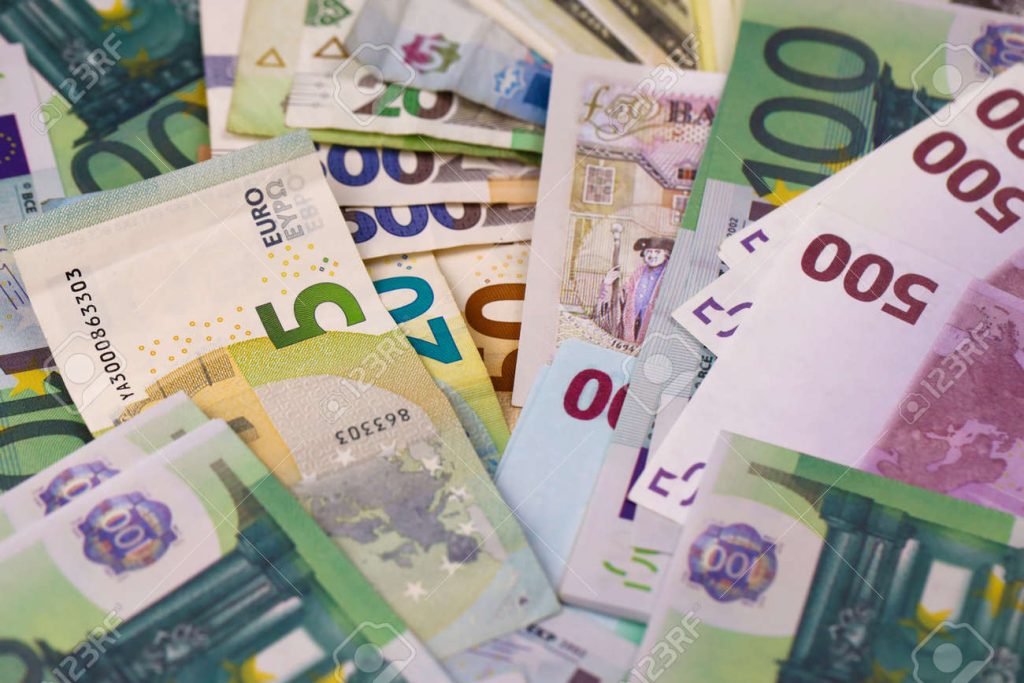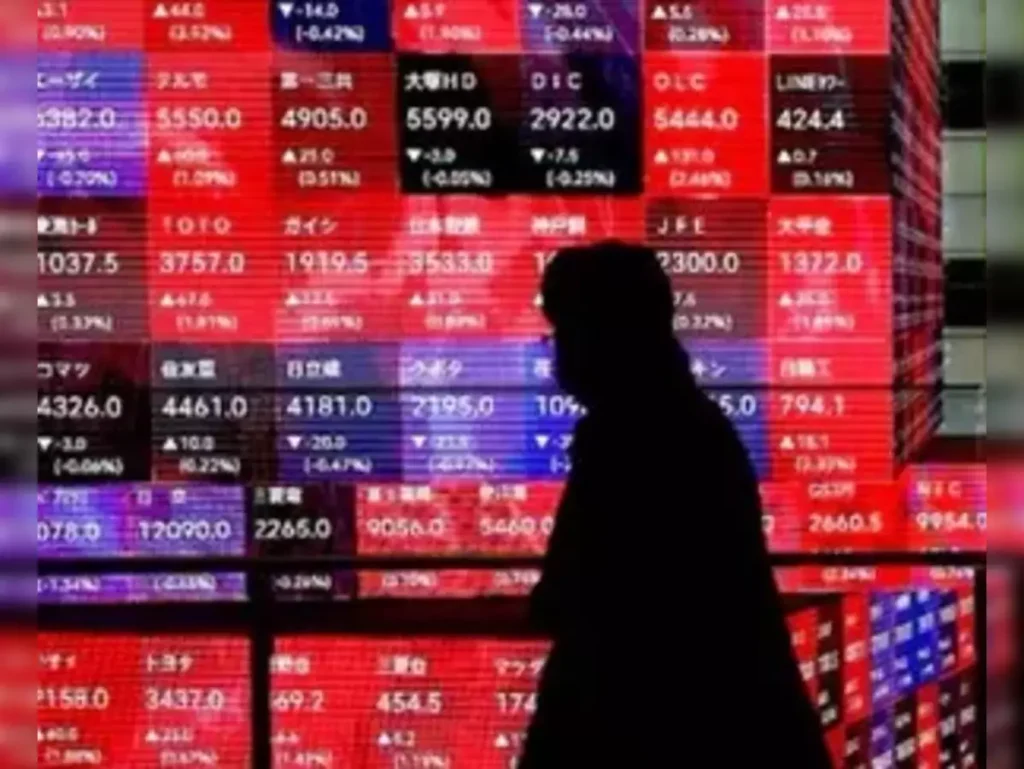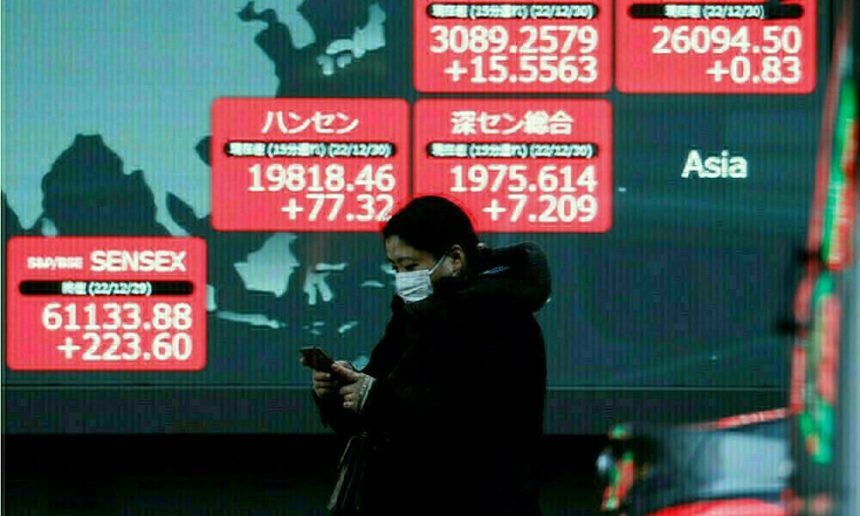Asian stock markets saw gains on Tuesday, buoyed by easing U.S. bond yields and a subdued dollar, as investors closely watched developments in U.S. economic policy under President-elect Donald Trump. Amid global uncertainty, traders remain cautious about Federal Reserve policy shifts and potential fiscal changes.
Asian equity markets extended gains, supported by advances in technology shares following Wall Street’s recovery from last week’s sharp losses. Japan’s Nikkei 225 rose 0.5%, while Australia’s ASX 200 surged 0.8% to reach a record high. Taiwan’s Taiex Index outperformed, climbing 1.3%.
However, Chinese markets lagged, weighed down by concerns over potential Trump-imposed tariffs and expectations of further economic stimulus from Beijing. The Hang Seng Index in Hong Kong slipped 0.1% after earlier gains, while mainland China’s blue-chip CSI 300 fell 1.2%.

U.S. S&P 500 futures signaled a 0.1% increase following a 0.4% advance in the cash index. European futures showed modest gains, with STOXX 50 futures rising 0.3%.
Investor sentiment remains tethered to speculation around President-elect Trump’s cabinet appointments and their implications for economic policy. With key roles like Treasury Secretary and Trade Representative yet to be filled, uncertainty lingers over the administration’s fiscal spending plans, trade policies, and immigration stance—all viewed as potentially inflationary.
READ ALSO: Google to Sell Chrome Browser to Break Search Monopoly
“Markets are grappling with how the incoming Trump administration will influence economic conditions, global trade, and geopolitics,” said Kyle Rodda, senior financial analyst at Capital.com. He added that this uncertainty has prompted investors to reassess the depth of future Federal Reserve rate cuts.
Traders have pared back expectations of a quarter-point rate cut at the Federal Reserve’s December meeting, with the probability now below 59%, compared to nearly 62% a day earlier, according to CME FedWatch. Resilient U.S. economic data and potential inflationary pressures from Trump’s policies could further dampen hopes for aggressive monetary easing.
U.S. Treasury yields retreated overnight, with the two-year yield edging down to 4.28% and the 10-year yield slipping to 4.41%. This softened the dollar, which hovered near its recent lows against major currencies.

The dollar index, which tracks the greenback against a basket of six major currencies, remained close to Monday’s low of 106.12, a notable drop from last Thursday’s one-year high of 107.07. The dollar sagged 0.17% against the yen at 154.41 but firmed slightly against the euro at $1.0584.
Safe-haven assets like gold continued to attract investor interest amid geopolitical tensions and a weaker dollar. Gold added 0.4% to trade at $2,623.49, following a nearly 2% jump on Monday—its largest single-day gain since August.
READ ALSO: IMF Cautions Asia: Retaliatory Tariffs Could Threaten Economic Growth
Cryptocurrencies also saw renewed interest, with Bitcoin ticking up 0.5% to $91,801, inching closer to its record high of $93,480 from last week. Optimism around potential favorable cryptocurrency regulations under Trump has fueled the recent rally.
Geopolitical concerns remain front and center, particularly with escalating tensions between Russia and Ukraine. In a significant policy shift, the Biden administration has allowed Ukraine to use U.S.-supplied weapons to strike targets deep inside Russia. This decision has drawn sharp criticism from the Kremlin, which warned of increased risks of a direct confrontation with NATO.
The growing tensions have also impacted crude oil markets, pushing prices higher. Brent crude futures added 7 cents to trade at $73.37 a barrel, while West Texas Intermediate futures climbed 4 cents to $69.20. Oil prices have been further supported by the temporary shutdown of Norway’s massive Johan Sverdrup oilfield due to a power outage.

While the recovery in Asian equities and softening U.S. yields provide some optimism, market participants remain cautious as they assess the potential implications of Trump’s economic policies and the Fed’s response to evolving conditions.
The interplay of inflationary pressures, geopolitical risks, and policy uncertainty will likely continue to shape global markets in the near term. For now, investors are treading carefully, seeking clarity amid a complex and rapidly changing economic landscape.

